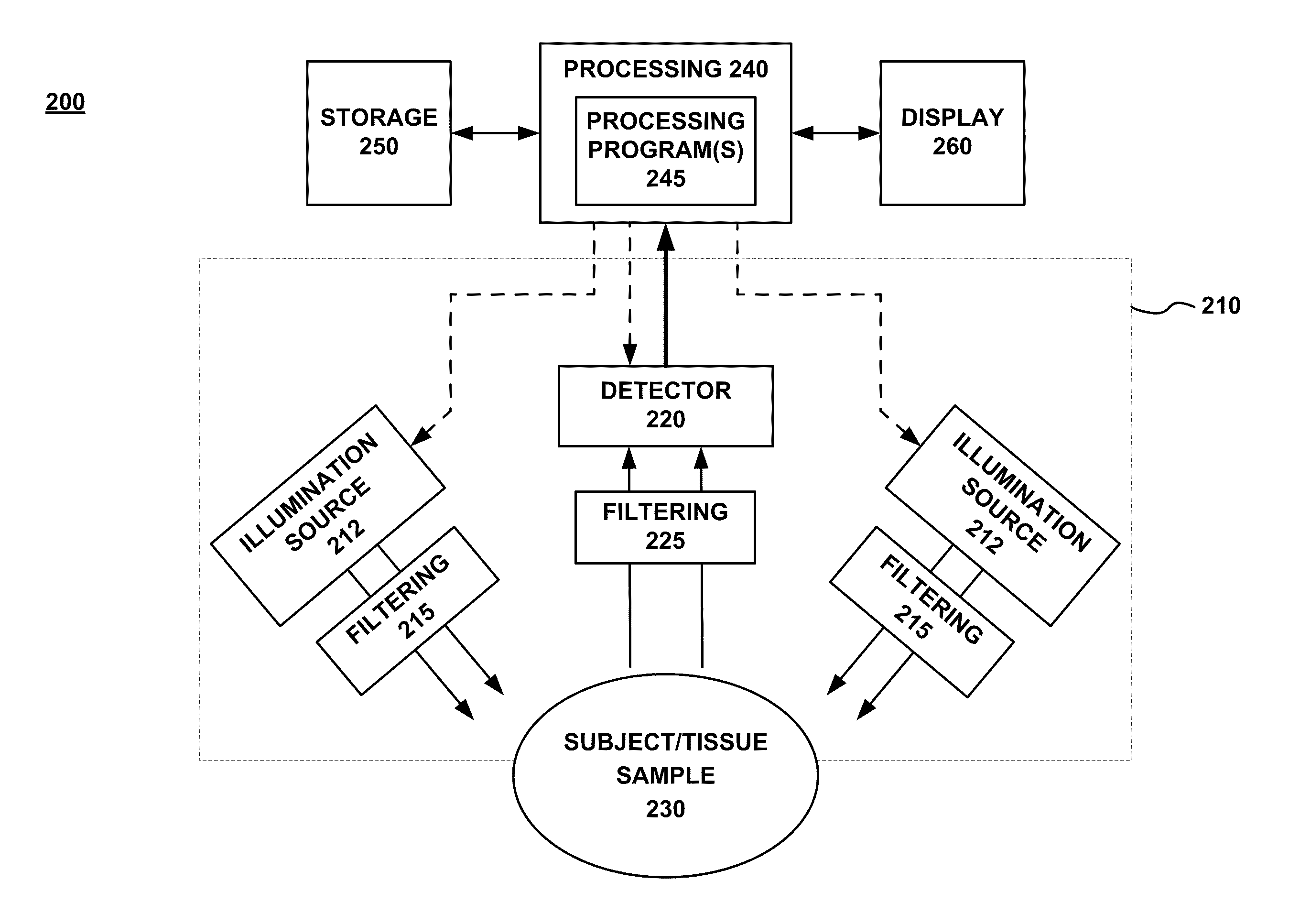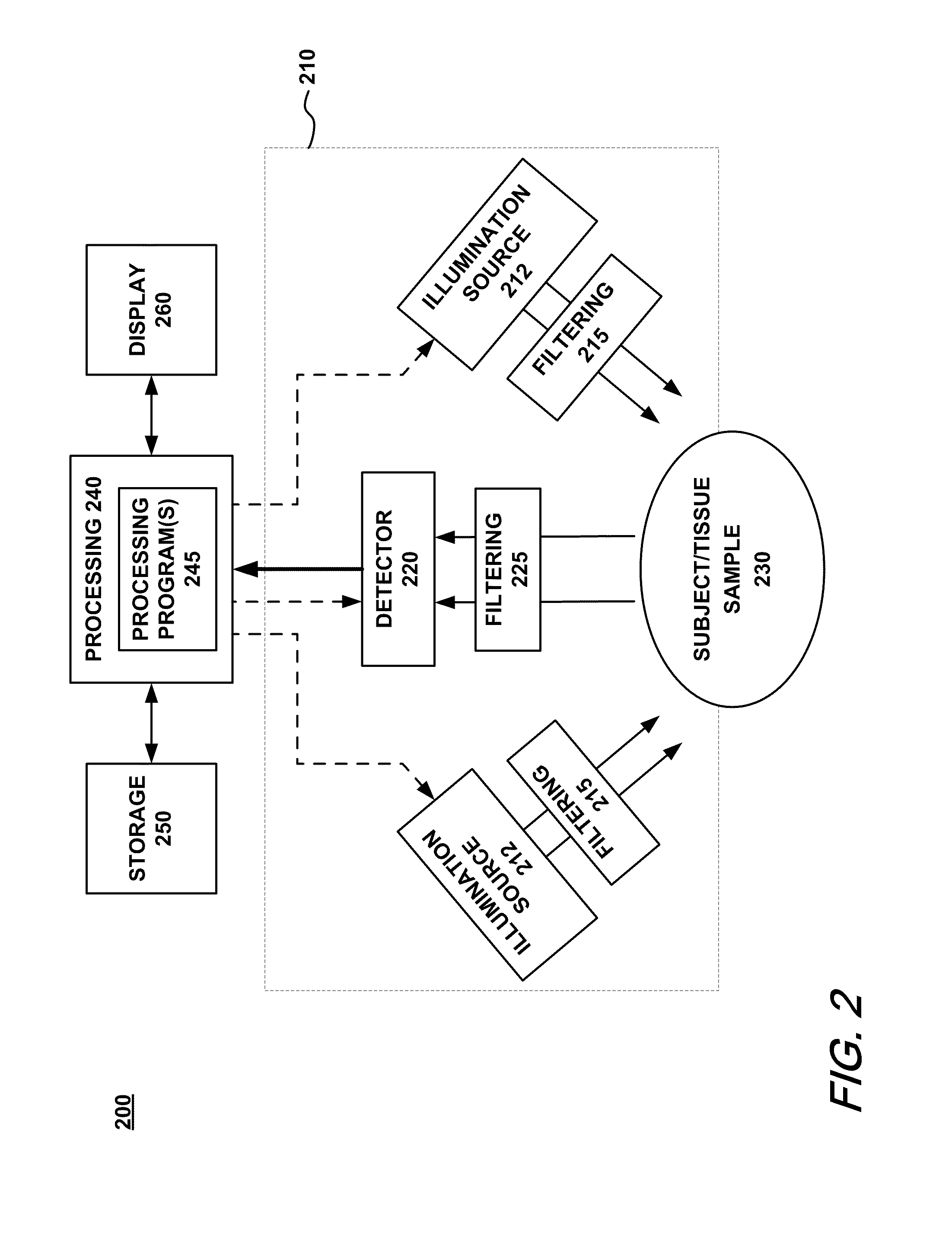Reflectance imaging and analysis for evaluating tissue pigmentation
- Summary
- Abstract
- Description
- Claims
- Application Information
AI Technical Summary
Benefits of technology
Problems solved by technology
Method used
Image
Examples
Embodiment Construction
[0019]FIG. 2 schematically depicts an exemplary embodiment of a tissue imaging and processing system 200 in accordance with the present invention, for capturing and processing images of tissue to be studied, such as skin. The major components of system 200 include an imaging apparatus 210 coupled to a processing block 240. As described more fully below, imaging apparatus 210 may include a wide variety of systems and / or devices such as, for example, a digital camera, preferably with flash, or a closed environment imaging booth. Image data captured by imaging apparatus 210 is provided to processing block 240 for processing. Processing block 240 may also control imaging apparatus 210, such as by controlling the capture of images and / or illumination. Imaging apparatus 210 may also operate without being controlled by processing block 240, and only provide image data for processing.
[0020]As shown in FIG. 2, imaging apparatus 210 includes one or more illumination sources 212 which are acti...
PUM
 Login to View More
Login to View More Abstract
Description
Claims
Application Information
 Login to View More
Login to View More - R&D
- Intellectual Property
- Life Sciences
- Materials
- Tech Scout
- Unparalleled Data Quality
- Higher Quality Content
- 60% Fewer Hallucinations
Browse by: Latest US Patents, China's latest patents, Technical Efficacy Thesaurus, Application Domain, Technology Topic, Popular Technical Reports.
© 2025 PatSnap. All rights reserved.Legal|Privacy policy|Modern Slavery Act Transparency Statement|Sitemap|About US| Contact US: help@patsnap.com



